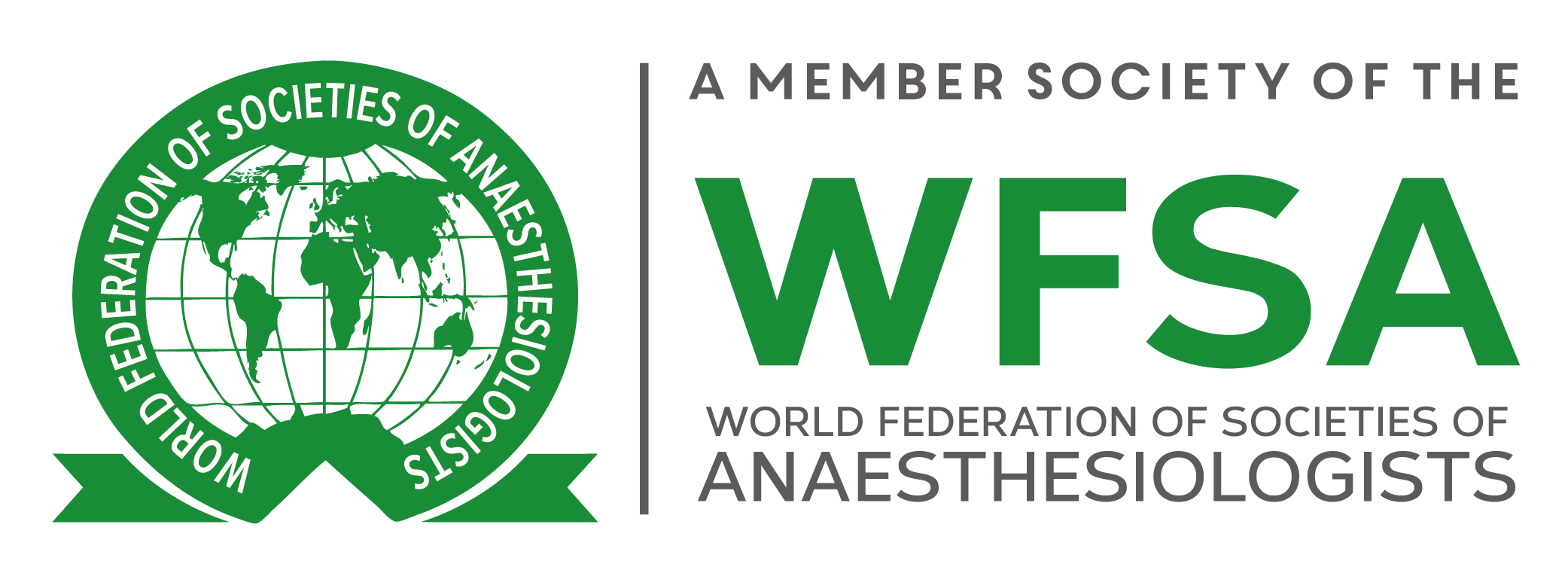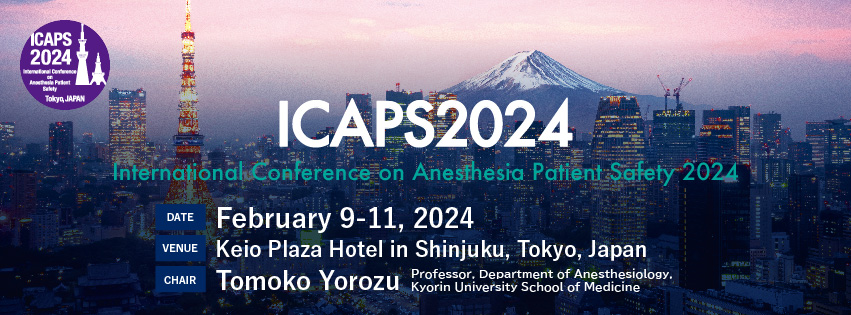Educational Opportunities
As a Public Interest Incorporated Association, the Japanese Society of Anesthesiologists (JSA) provides educational opportunities that serve the public interest of Japan.
Certification of Training Hospitals
There are 1,423 JSA Certified Training Hospitals (as of 2018), of which 202 sponsor JSA accredited anesthesia residency programs (in 2019). JSA Certified Training Hospitals must have a department of anesthesia managed by a JSA Board Certified Anesthesiologist employed full-time, with a minimum caseload requirement of 200 per year managed by full-time anesthesia providers. Additional requirements include adequate clinical facilities (e.g. non-smoking) and academic considerations for trainees such as availability of books, journals, and provisions for attending academic meetings.
To sponsor training programs in anesthesia, JSA Certified Training Hospitals must have at least 500 cases per year involving multiple surgical specialties, and must retain at least one Board Certified Anesthesiologist per 500-1,000 cases to provide adequate supervision. There must also be a program director who is a Fellow of the JSA, responsible for planning and administration of training.
Anesthesia Credentialing in Japan
Anesthesia credentialing in Japan is provided by the JSA, by the Japanese Medical Specialty Board (JMSB), and by the Ministry of Health, Labour and Welfare (MHLW) at several levels.
Registered Anesthesiologist: ‘hyobo-i’
The first level is ‘hyobo-i’ or Registered Anesthesiologist. Registration is conducted by the MHLW in accordance with Japanese law (the Medical Care Act), and grants legal permission to present oneself as a provider of anesthesia services. Licensed physicians in Japan who meet the following criteria are eligible for registration: 1. Completed at least two years of full-time clinical anesthesia training, and 2. Served as primary anesthesia provider for over 300 cases of general anesthesia with endotracheal intubation. Registration does not require renewal.
JSA Qualified Anesthesiologist: ‘nintei-i’
Registered Anesthesiologists who are JSA members in good standing may apply for qualification as ‘nintei-i’ or JSA Qualified Anesthesiologist. Qualification can be renewed every 5 years by earning sufficient academic credits provided by the JSA.
Board Certified Anesthesiologist: ‘senmon-i’
Specialist certification including other medical field in Japan is administered via the JMSB. Junior physicians enter a four-year training program towards anesthesia specialist certification as ‘senmon-i’ or Board Certified Anesthesiologist. Candidates must pass a written, oral, and practical exam in addition to completing the requirements of their four-year training program, which includes a minimum number of clinical case experiences. These include anesthesia experience as primary anesthesiologist for at least 10 cesarean sections, 25 thoracic surgery cases, and 25 neurosurgery cases. Experience as primary or secondary anesthesiologist is required for at least 25 cardiovascular cases (including the thoracic aorta), and at least 25 pediatric cases (<6 years of age). Aside from clinical experience, credits must be earned by participating in academic meetings and continuing education activities.
Current AHA-ACLS or PALS provider status is also required. Board Certification is renewed every 5 years. Clinical and academic credits are required. There is no exam for renewal of board certification.
Trainer of the JSA: ‘shido-i’
In addition to obtaining the Board Certified Anesthesiologist ('senmon-i') certification granted by the JMSB, some senior physicians also apply for 'Shido-i' certified by the JSA.
‘Shido-i’ means teaching physician, and is an honorific title for Trainer of the JSA. Candidates must be Board Certified Anesthesiologists. JSA Certification of Trainer is renewed every 5 years.
Subspecialty Board Certification
Subspecialty board certifications for intensive care, acute care, and pain clinicians are available through the Japanese Medical Specialty Board. Other subspecialty certifications such as cardiac, pediatric, and local anesthesia are available through their respective professional societies.
Japanese Medical Specialty Board: https://www.japan-senmon-i.jp
Japanese Society of Intensive Care Medicine: https://www.jsicm.org/en/
Japanese Association for Acute Medicine: http://www.jaam.jp/html/english/english-top.htm
Japan Society of Pain Clinicians: https://www.jspc.gr.jp/english/english.html
Japanese Society of Cardiovascular Anesthesiologists: http://www.jscva.org
Japanese Society of Pediatric Anesthesiology: http://www.ped-anesth.com
Japanese Society of Regional Anesthesia: http://www.regional-anesth.jp
Practicing Anesthesia in Japan (for International Medical Graduates)
By law, a Japanese medical license is required to practice medicine (including anesthesia) in Japan. However, special exceptions are granted for physicians with foreign medical licenses who are accepted by participating institutions for advanced clinical training, teaching, or research in the spirit of international exchange and aid. Foreign physicians must have at least three years of clinical experience after earning their medical licenses, and must demonstrate adequate language skills (e.g. Japanese) to perform expected duties, which may continue for up to two years.
Application Documents (in Japanese):
http://shinsei.e-gov.go.jp/search/servlet/Procedure?CLASSNAME=GTAMSTDETAIL&id=4950000005085&fromGTAEGOVMSTDETAIL=true
For details, please ask your sponsoring institution or the Committee of International Affairs at the JSA.






